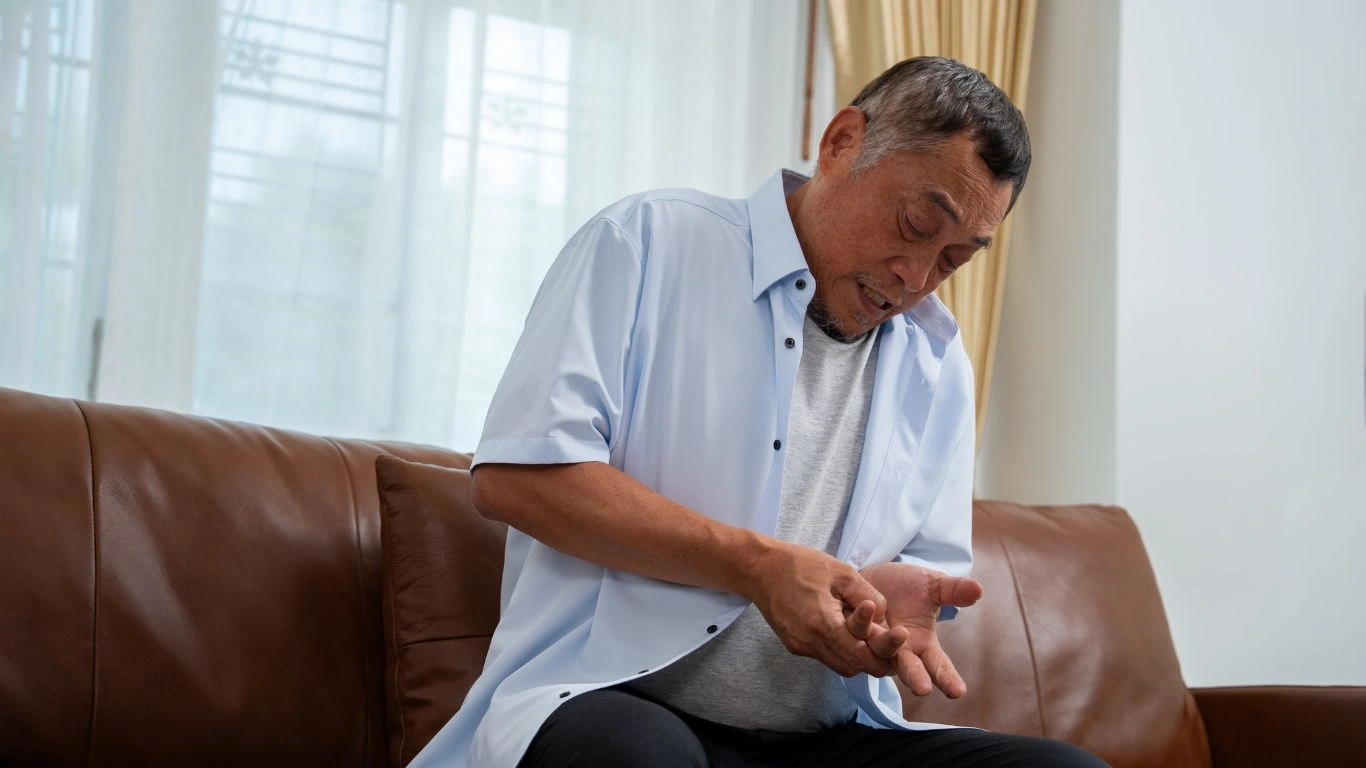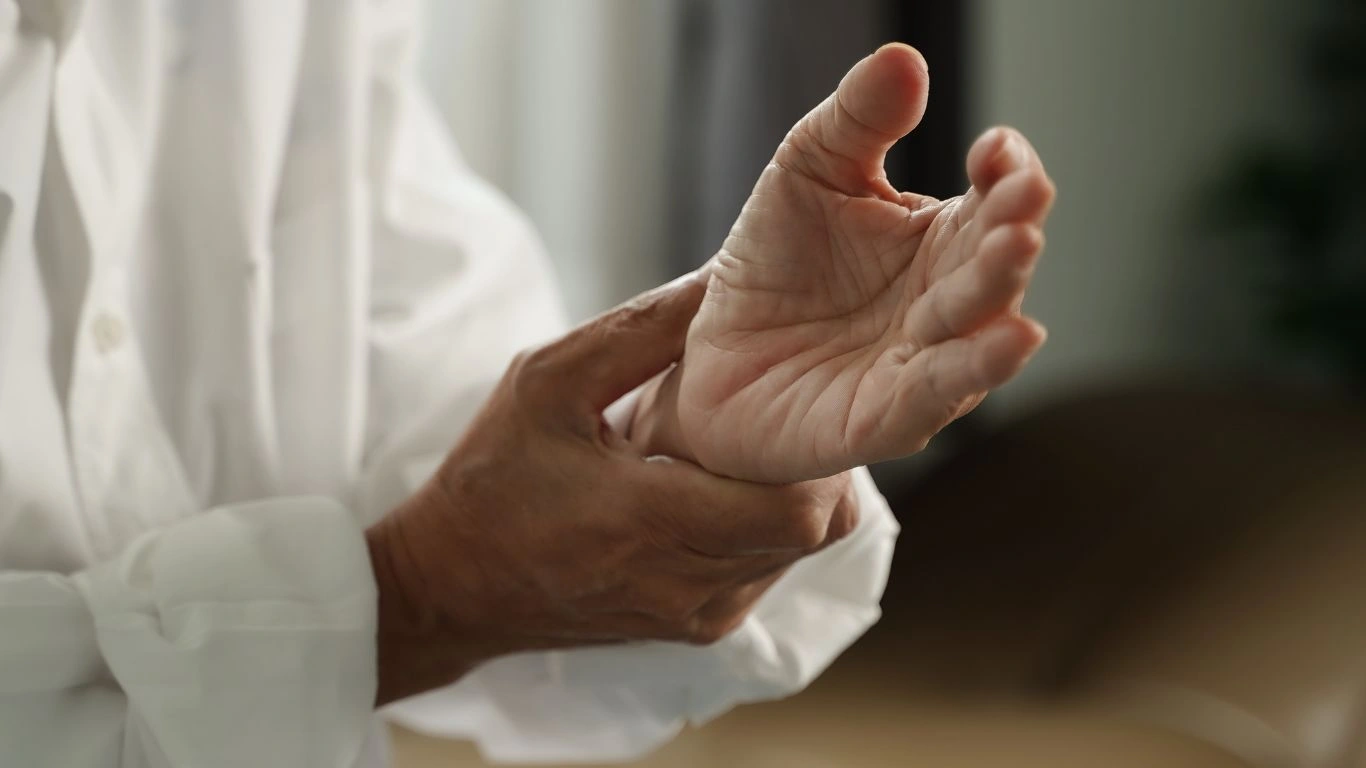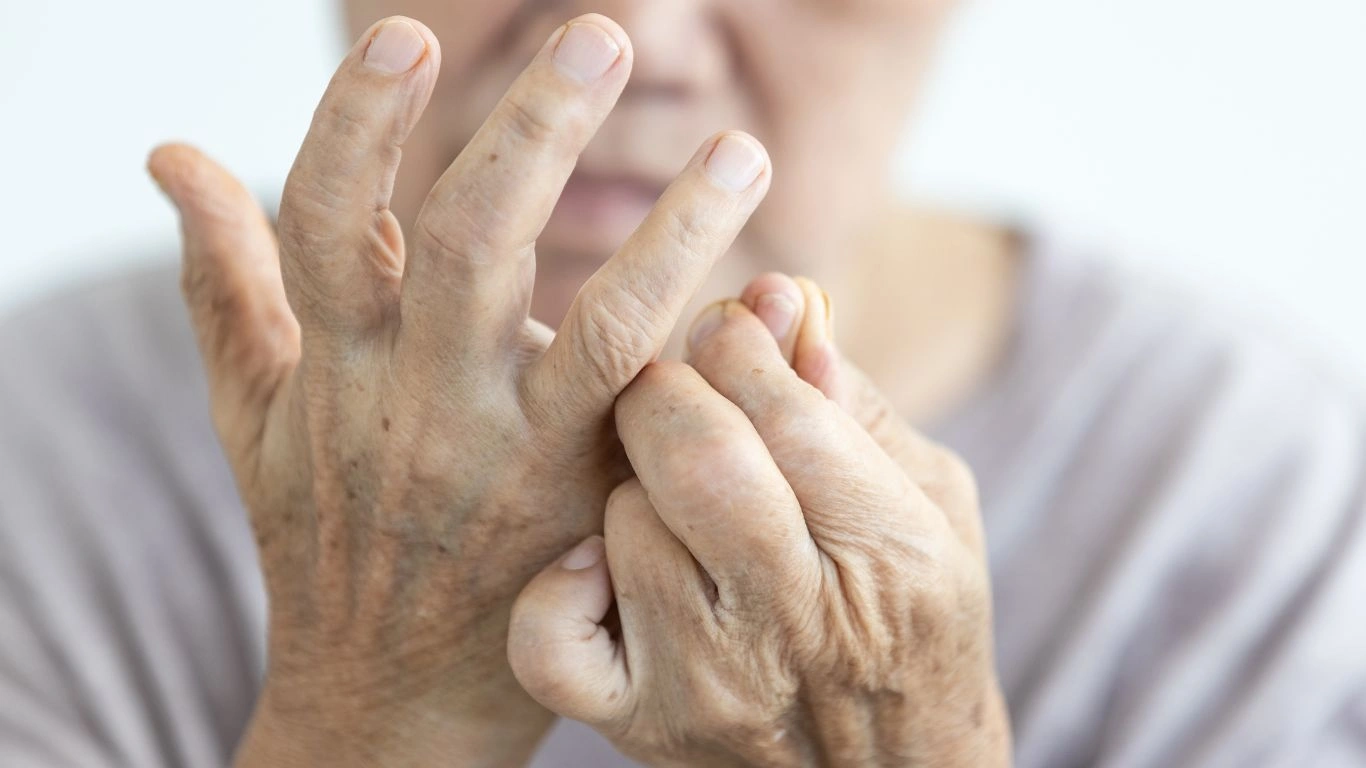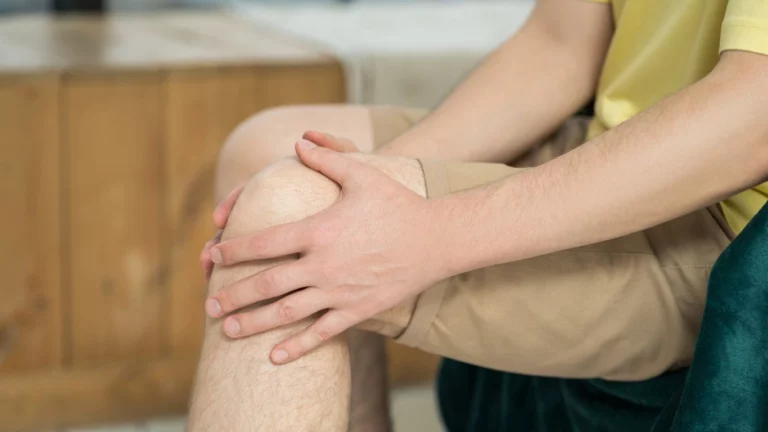How to Prevent RA Flare-Ups: Effective Tips for Lasting Relief
If there’s one thing I’ve learned over the years working with RA patients, it’s that figuring out how to prevent RA flare-ups isn’t a one-size-fits-all deal. Every patient is unique, but the common thread? Flare-ups are frustrating, painful, and disruptive. I’ve sat with countless patients who feel like they’re doing everything right—then bam, a flare sneaks up out of nowhere. The good news? There are absolutely steps we can take to reduce the risk and regain a little control. Let’s talk about what actually works—not just what Google says, but what I’ve seen help real people living with rheumatoid arthritis.
Understanding What Triggers RA Flares

It’s Not Always Obvious
RA flares can seem random, but they usually aren’t. From what I’ve observed in clinic, most flares have subtle lead-ups—little signs that are easy to miss if you’re not looking for them. Some of the common culprits include:
- Stress – Emotional or physical, it’s one of the biggest flare triggers I see. Even good stress (like traveling or big events) can do it.
- Weather changes – Yep, the seasons matter. Cold, damp days can feel like a storm is brewing in your joints.
- Poor sleep – If your body’s not getting enough rest, inflammation tends to rise.
- Infections – Even something as small as a cold can ramp up your immune system and trigger a flare.
- Skipping medications – This one’s tough. Sometimes people start to feel better and think it’s safe to ease off meds. Unfortunately, that can backfire fast.
Keeping a Flare Journal
One trick I always recommend to my patients? Keep a simple symptom journal. It doesn’t have to be fancy—just jot down how you feel daily, any changes in routine, weather, stress levels, etc. Over time, patterns usually start to emerge. That insight can be gold when trying to figure out what to avoid.
Daily Habits That Actually Help

Movement Matters
Now, I know exercise might be the last thing on your mind when your joints are screaming—but hear me out. Gentle, regular movement keeps joints flexible and muscles strong, and it can actually help prevent RA flare-ups. I’m not talking about training for a marathon. Think low-impact, feel-good stuff like:
- Morning stretches (I call them “joint wake-ups”)
- Swimming or water aerobics
- Yoga or tai chi
- Short daily walks, even just 10 minutes
One of my patients, Carla, swore by her nightly yoga routine. She said it was her secret weapon for keeping stiffness at bay. And honestly, I’ve heard that more than once.
Anti-Inflammatory Diet Tweaks
This part gets a lot of eye-rolls, but stay with me. I’m not asking anyone to go full keto or give up everything they love. But some simple swaps can make a difference. A few diet moves that tend to help:
- Swapping processed snacks for fresh fruit or nuts
- Adding omega-3 rich foods like salmon or flaxseeds
- Cutting back on sugary drinks and refined carbs
- Incorporating turmeric or ginger into meals (they’ve got natural anti-inflammatory properties!)
One of my go-to tricks is suggesting folks try “Meatless Mondays” with dishes loaded with veggies and legumes. It’s a gentle nudge toward an anti-inflammatory lifestyle without overwhelming anyone.
The Power of Listening to Your Body

Pacing, Not Pushing
This might be the hardest part for my go-getter patients. Slowing down feels like giving up—but in RA life, it’s actually one of the smartest things you can do. I always say: “Rest is not lazy. It’s strategic.” If your body’s whispering, don’t wait for it to scream. Cancel plans. Take the nap. Skip the vacuuming. You’re not being flaky, you’re being smart with your energy budget.
Mindfulness and Stress Management
Managing stress isn’t just a nice idea—it’s a flare prevention tactic. Guided meditation, breathing exercises, journaling, even therapy if needed… these tools are powerful. I’ve had patients tell me they were skeptical until they tried a 5-minute breathing app before bed and slept better than they had in weeks.
Medication: Your Best Ally in Preventing RA Flare-Ups

Why Sticking to Your Treatment Plan Matters
One of the most important lessons I’ve learned as a Rheumatology nurse practitioner is how crucial medication adherence is for keeping RA under control. I can’t stress this enough: taking your medications exactly as prescribed is one of the most effective ways to prevent RA flare-ups. Skipping doses or stopping treatment on your own can feel tempting—especially when symptoms improve—but it almost always backfires.
Many of my patients have shared stories about how skipping meds “just for a few days” led to sudden joint pain and swelling that set them back weeks. RA isn’t something you can outsmart by playing with your meds—your immune system is always watching. Maintaining a consistent medication routine keeps inflammation in check and helps protect your joints from long-term damage.
Working Closely with Your Rheumatology Team
RA treatment isn’t just about pills; it’s about teamwork. Regular check-ins with your rheumatologist and nurse practitioner make a huge difference. We monitor disease activity, adjust medications if needed, and help troubleshoot any side effects or concerns. From my experience, patients who feel supported and heard tend to manage flare risks much better.
Don’t hesitate to speak up if something feels off—whether it’s a new symptom, medication side effect, or just feeling overwhelmed. We’re here to guide you, and sometimes even small tweaks can keep a flare at bay.
Smart Lifestyle Choices to Keep RA Flares in Check

Sleep: The Underestimated Game-Changer
Sleep is often the forgotten piece of the puzzle, yet it plays a massive role in inflammation control. When I ask patients about their sleep habits, many underestimate how poor sleep affects their RA. In reality, restless nights and insufficient sleep can ramp up inflammation and make flare-ups more likely.
One of my patients, Mark, told me that improving his sleep hygiene—like sticking to a consistent bedtime and limiting screen time before sleep—dramatically reduced his flare frequency. So if you’re struggling with sleep, it’s worth exploring relaxation techniques or talking to your healthcare provider about it.
Weight Management and RA
Carrying extra weight puts additional strain on your joints, especially in RA where inflammation is already present. Maintaining a healthy weight is not about appearance; it’s about reducing joint stress and inflammation. I’ve seen firsthand how even modest weight loss can ease symptoms and lower flare risk.
That doesn’t mean crash diets or extremes—just realistic, sustainable changes in diet and activity. Think of it as treating your body with kindness and respect, which in turn helps your RA stay calm.
Quit Smoking: A Non-Negotiable
If you’re a smoker, quitting is one of the most impactful steps you can take to prevent RA flares and improve overall health. Smoking not only increases inflammation but also reduces how well some RA medications work. I’ve worked with many patients who saw improvements in their symptoms after quitting smoking, and it often boosted their medication effectiveness too.
Environmental and Emotional Factors: They Matter More Than You Think

Managing Stress to Prevent RA Flares
Stress and RA have a complicated relationship. When stress hits, your body releases chemicals that can increase inflammation, triggering or worsening flare-ups. This isn’t just theoretical—I see it all the time in practice.
One of my patients, Rachel, was amazed at how incorporating simple stress management techniques into her daily routine helped reduce her flare frequency. Whether it’s meditation, deep breathing, or even just regular breaks during a hectic day, these small practices add up.
Avoiding Environmental Triggers
Some environmental factors can also provoke flares. Harsh weather, exposure to certain chemicals, or even allergens might exacerbate symptoms. While you can’t control everything, paying attention to your environment and making small adjustments—like dressing warmly on cold days or using air purifiers during allergy season—can provide some flare protection.
The Importance of Social Support
Living with RA isn’t easy, and having a solid support network can make a huge difference. From family and friends to support groups, feeling understood and encouraged helps reduce emotional stress and keeps you motivated to stick with your prevention plan.
Personally, I’ve seen how patients who connect with others battling RA feel less isolated and more empowered. Sometimes just knowing you’re not alone can help prevent a flare from feeling overwhelming.
Proactive Monitoring and When to Seek Help

Recognizing Early Signs of a Flare
From my experience, catching a flare early can be a game-changer. Sometimes patients wait too long to report symptoms because they don’t want to “bother” their healthcare team or hope it’ll pass. But early intervention often prevents a full-blown flare and the pain, stiffness, and fatigue that come with it.
Some early warning signs to watch for include:
- Increased joint tenderness or swelling
- Feeling more tired than usual without a clear reason
- Morning stiffness lasting longer than usual
- Subtle changes in range of motion or grip strength
Keeping open communication with your rheumatology team means you get the right adjustments—whether that’s medication tweaks, physical therapy, or additional labs—before things escalate.
Partnering in Your Care
I always encourage patients to be active participants in their health journey. Ask questions, take notes during appointments, and don’t hesitate to get a second opinion if you feel unsure. RA is complex, and sometimes it takes a team effort to get things balanced right.
Innovations and Resources for RA Flare Prevention

Technology That Helps
Living with RA today comes with some great tools we didn’t have years ago. There are apps designed to track symptoms, medication schedules, and even mood and stress levels. I often recommend patients try these to spot flare patterns and share detailed reports with their care team.
Wearable tech like smartwatches can also monitor activity and sleep quality, giving you a clearer picture of what might trigger flares. One patient of mine told me how her smartwatch alerted her to poor sleep patterns right before a flare, helping her take preventive steps.
Support Networks and Education
Education is empowering. Understanding your condition helps you advocate for yourself and make smarter choices daily. I always share trusted resources with my patients and encourage joining RA support groups—whether local or online. The shared experience, tips, and encouragement are invaluable.
Putting It All Together: Your Personalized Flare Prevention Plan
Building a Routine That Works for You
What I love most about working with people living with RA is how creative and adaptable they are. No two flare prevention plans look exactly the same—and that’s perfectly fine. The key is finding what fits your lifestyle and feels sustainable. Here’s a quick checklist you might find useful:
- Medication adherence: Take your meds as prescribed, and communicate any issues promptly.
- Movement: Incorporate gentle exercises daily, tailored to your ability and comfort.
- Nutrition: Focus on anti-inflammatory foods and maintain a balanced diet.
- Sleep: Prioritize good sleep hygiene to support immune health.
- Stress management: Find relaxation techniques that resonate with you and practice regularly.
- Environmental awareness: Dress appropriately for weather changes and avoid known irritants.
- Communication: Keep in touch with your healthcare team and be proactive about symptoms.
Creating a written plan or journal can keep you accountable and help spot what works best over time. It’s a living document, so update it as you learn more about your RA.
My Final Thoughts (For Now!)
Preventing RA flare-ups isn’t about perfection—it’s about progress. You don’t have to tackle everything at once. Even small changes, when consistent, add up to big improvements. Remember, I’ve seen firsthand how patients regain control over their lives by taking proactive steps, and you can too.
References
Disclaimer
This article is for informational purposes only and does not replace professional medical advice. Always consult your healthcare provider for diagnosis and treatment tailored to your individual health needs.

Tarra Nugroho is a dedicated Nurse Practitioner with a strong foundation in family and preventive care. She brings both compassion and clinical expertise to her practice, focusing on patient-centered care and health education. As a contributor to Healthusias.com, Tarra translates medical knowledge into clear, empowering articles on topics like women’s health, chronic disease management, and lifestyle medicine. Her mission is simple: help people feel seen, heard, and informed—both in the clinic and through the content she creates. When she’s not caring for patients, Tarra enjoys weekend hikes, plant-based cooking, and curling up with a good health podcast.







